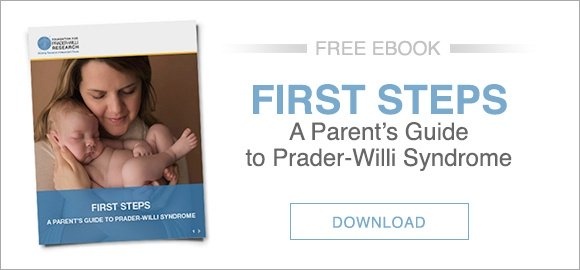 There's been a lot of buzz in the scientific literature about the "gut-brain connection" — the two-way communication occurring between the brain and the gut.
There's been a lot of buzz in the scientific literature about the "gut-brain connection" — the two-way communication occurring between the brain and the gut.
This communication can occur directly through nerve signals, and indirectly by hormones secreted into the blood. Scientist are beginning to decipher this complex communication process, which regulates hunger and satiety in all of us; in Prader-Willi syndrome, hunger and satiety signaling are disrupted.
A recent article in Scientific American about the gut-brain connection features several therapeutic approaches currently in development that might be helpful for PWS. The article is titled "Metabolism in Mind: New Insights into the 'Gut–Brain Axis' Spur Commercial Efforts to Target It: What if controlling the appetite were as easy as flipping a switch?"
Current Lines of Gut-Brain Research
FPWR is actively involved in several of the lines of research highlighted in the Scientific American article. Dr. Piomelli, at the University of Irvine, is working on understanding the role of lipid oleoylethanolamide (OEA) in PWS and its potential as a therapeutic. The article also discusses the potential of devices that stimulate the vagus nerve to promote feelings of fullness. FPWR is excited to be funding a pilot study of vagus nerve stimulation in PWS. This study is looking at improvements to behavioral outcomes, and is being led by Dr. Tony Holland at the University of Cambridge.
Another approach discussed in the Scientific American article is activation of the MC4-receptor in the hypothalamus of the brain. This is the mechanism of Rhythm Pharmaceutical's drug, setmelanotide, currently in clinical development for PWS. The ongoing Phase 2 trial of setmelanotide is being supported in part by an FDA Orphan Products Development Award, which Rhythm submitted with collaborative support from FPWR.
Implications for PWS
It's exciting to see how advances in the fundamental understanding of these hunger and satiety signals is being translated into new therapies that may help our loved ones with PWS finally be able to control their appetite. We at FPWR look forward to continuing to advance the development of each of these lines of research, along with other promising approaches. For up-to-date information on clinical trial and research opportunities in PWS, as well as information on the clinical trials process, please visit our clinical trials page.








